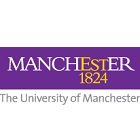- 最新消息
- Find usIDP AustraliaIDP BahrainIDP BangladeshIDP CambodiaIDP CanadaIDP ChinaIDP EgyptIDP GhanaIDP Hong KongIDP IndiaIDP IndonesiaIDP IranIDP JordanIDP KenyaIDP KoreaIDP KuwaitIDP LebanonIDP MalaysiaIDP MauritiusIDP Middle EastIDP NepalIDP New ZealandIDP NigeriaIDP OmanIDP PakistanIDP PhilippinesIDP Saudi ArabiaIDP SingaporeIDP Sri LankaIDP Taiwan, ChinaIDP ThailandIDP TurkeyIDP UAEIDP VietnamIDP Corporate
- Social
- 繁體中文(台灣)
- Where we operate
- Courses
- Scholarships
- IELTS
- About IDP
- 留學生活服務
- 最新消息
- Find us
- Find us
- Find nearest IDP offices
- IDP Australia
- IDP Bahrain
- IDP Bangladesh
- IDP Cambodia
- IDP Canada
- IDP China
- IDP Egypt
- IDP Ghana
- IDP Hong Kong
- IDP India
- IDP Indonesia
- IDP Iran
- IDP Jordan
- IDP Kenya
- IDP Korea
- IDP Kuwait
- IDP Lebanon
- IDP Malaysia
- IDP Mauritius
- IDP Middle East
- IDP Nepal
- IDP New Zealand
- IDP Nigeria
- IDP Oman
- IDP Pakistan
- IDP Philippines
- IDP Saudi Arabia
- IDP Singapore
- IDP Sri Lanka
- IDP Taiwan, China
- IDP Thailand
- IDP Turkey
- IDP UAE
- IDP Vietnam
- IDP Corporate
- Social
- 切換語言
- IDP 教育 /
- 學院及大學 /
- United Kingdom /
- University Of Manchester /
- BA (Hons) History and French


地點
United Kingdom
資格
Bachelor Degree with Honours
費用
GBP25500
(2025)
時長
4 Year(s)
下個學年
15 September 2025
入學成績
7.0
雅思考試COURSE_INFO
BA History and French provides you with the opportunity to study aspects of history that interest you most, from ancient, medieval, modern, and economic and social history, to the history of science, technology and medicine. You will also develop a comprehensive grounding in French language, literature, culture, history and linguistics, enabling you to become proficient enough in French to live and work effectively in a French-speaking environment. History We offer one of the most diverse history courses in the UK, with course units covering almost all of human history, including British, European, American, Asian and African history, and ranging from the classical era (Greece and Rome), through the medieval and modern periods, to the late 20th century. We offer a wide variety of approaches to history, from political and economic history, to gender, social, cultural, and colonial history. You will benefit from studying in the historically rich city of Manchester, itself is a living history book - from Peterloo to the anti-slavery movement, and from Roman and Anglo-Saxon forts to medieval monuments. You can draw on the abundant library, archive and museum holdings of the local area, including Chetham's Library, The Museum of Science and Industry, The People's History Museum and the Working Class Movement Library. You will also have access to one of only five National Research Libraries, including the special collections of The John Rylands Library, as well as the exclusive holdings of Manchester Museum. Our course content is directly informed by our world-leading research - the 2014 Research Excellence Framework (a UK-wide benchmark for research excellence) ranked History at Manchester 4th in the UK for the quality of our research outputs, with 82% of our overall research activity recognised as world leading' (4) or internationally excellent' (3). French At least two thirds of our staff are native speakers, teaching you in French language classes as well as most culture classes. You will experience between 3 and 6 hours of French grammar and conversation every week (at post A-Level or beginners' level), in order to reach near-native precision and fluency. This will run in parallel with optional course units on French and Francophone history, politics, literature, popular culture and/or linguistics, from the Early Modern period to the present.
- 獎學金 查看所有獎學金
- 實習
以上學費僅供參考。 以獲得準確的費用
Duration: 4 Year(s)
Fees: GBP25500
| 學年 | 地點 |
|---|---|
| Semester (September), 2025 | Manchester |
| Semester 1 (September), 2026 | Manchester |
| Semester 1 (September), 2025 | Manchester |
入學要求 University Of Manchester
A-level
AAB including A in History.
The University recognises the benefit of the Extended Project Qualification (EPQ) and the opportunities it provides for applicants to develop independent study and research skills. We strongly encourage you to provide information about the EPQ in your personal statement and at interview. For this programme, as well as the regular conditions of offer, we may make students who are currently taking or completed the EPQ an alternative offer. For this course it would be ABB with A in History plus the Extended Project at Grade A.
GCSE
Applicants must demonstrate a broad general education including acceptable levels of Literacy and Numeracy, equivalent to at least Grade C or 4 in GCSE/iGCSE English Language and Mathematics. GCSE/iGCSE English Literature will not be accepted in lieu of GCSE/iGCSE English Language.
International Baccalaureate
35 points overall. 6,6,5 in Higher Level subjects (including 6 in History)
IELTS 7.0 overall with no less than 6.5 in any one component, TOEFL iBT - 100
申請截止日期
申請截止日期無法使用 與顧問對談 了解更多細節資訊
Further information
If you aren't eligible for the above entry requirements, you might ant to explore pathway options at University Of Manchester. If you want to find out more, speak to our counsellors.
泰晤士高等教育世界大學排名 (THE)
53rd / 1250
泰晤士高等教育世界大學排名 (THE)19th / 130
完全大學指南 (Complete University Guide)IDP 學生怎麼說?
我們尚未收到該機構的任何評論。
推薦給你
- 大學
- United Kingdom
- 資金類型: Fee waiver/discount
- 大學
- United Kingdom
- 資金類型: Fee waiver/discount
- 大學
- United Kingdom
- 資金類型: Fee waiver/discount
- 大學
- United Kingdom
- DEADLINE: Nov 2024
- 資金類型: Fee waiver/discount
- 大學
- United Kingdom
- 資金類型: Fee waiver/discount
- 大學
- United Kingdom
- 資金類型: Cash
Your action plan
步驟 1
Shortlist your courses
Choose the best three courses you’re most likely to pursue.
步驟 2
Check your eligibility
Get an instant in-principle offer for courses with the IDP FastLane tag.
步驟 3
Apply through IDP Live
Fill out the form once and use it to apply to multiple courses.
IDP FastLane 如何運作?
通過FastLane OIP,你將在幾分鐘內知道自己是否獲取錄!
選擇一個院校機構和課程
建立個人學術檔案
提交 OIP 申請
你選擇的機構將會在幾分鐘內發送結果!
與留學顧問一起準備申請




